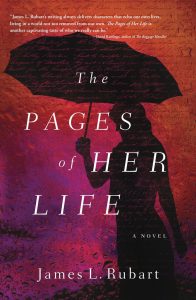by James L. Rubart, @jameslrubart

“Anything worth doing is worth doing badly.” G.K. Chesterton
(For you purests, the actual line is, “If a thing is worth doing, it is worth doing poorly.”)
When I heard that quote for the first time back in the summer of 2000 it was game changer for me.
Like many of us (up till that summer) I’d always wanted to be assured I could do something halfway decent before I’d try it. Actually, in complete candor, I wanted to be able to do it three quarters decent. Especially when someone could see me. Is that an impossible aspiration? Even a quarter of the way? Yes, of course.
Is it possible to get better at something without being bad at the start? No.
But we’re so worried about what others will think of us, we rarely get out on the skinny branches without iron clad assurances they won’t break.
However, does anyone really care if we’re bad at something when we begin? Nope. They’re too consumed with their own feelings of inadequacy and having an internal debate as to the strength of their branches.

And truth be told, even if they were watching us, they wouldn’t care! In fact they’d like us more. We admire people who take the shot, yes? People who die to their ego encourage us.
Think about it. Do you admire a person who is willing to try something new? Or do you save your admiration for the person who always sits on the sidelines? Who vows to never look the fool?
Easy answer.
Enough talk. Time for action. Time to embrace the freedom that comes with accepting the fact you can do things poorly, and it’s perfectly okay. Because it’s the only way to get good at those things you dream of doing.
You want to write a screenplay, a novel, craft a poem, do a video for your readers … whatever it is, do it. Do it poorly, so bad that your face goes red for a week.
So what’s it going to be? What are you going to start doing badly this week or tomorrow or today or right now?
Write it down, then (as G.K. would probably say if he were alive today) just do it.
To your epic badness.

How Do You Stand Up for Yourself When It Means Losing Everything? Allison Moore is making it. Barely. The Seattle architecture firm she started with her best friend is struggling, but at least they’re free from the games played by the corporate world. She’s gotten over her divorce. And while her dad’s recent passing is tough, their relationship had never been easy.
Then the bomb drops. Her dad was living a secret life and left her mom in massive debt.
As Allison scrambles to help her mom find a way out, she’s given a journal, anonymously, during a visit to her favorite coffee shop. The pressure to rescue her mom mounts, and Allison pours her fears and heartache into the journal.
But then the unexplainable happens. The words in the journal, her words, begin to disappear. And new ones fill the empty spaces—words that force her to look at everything she knows about herself in a new light.
Ignoring those words could cost her everything . . . but so could embracing them.

James L. Rubart is 28 years old, but lives trapped inside an older man’s body. He thinks he’s still young enough to water ski like a madman and dirt bike with his two grown sons. He’s the best-selling, Christy BOOK of the YEAR, CAROL, INSPY, and RT Book Reviews award winning author of ten novels and loves to send readers on journeys they’ll remember months after they finish one of his stories. He’s also a branding expert, audiobook narrator, co-host of the Novel Marketing podcast, and co-founder with his son, Taylor, of the Rubart Writing Academy. He lives with his amazing wife on a small lake in Washington state.

Comments 1
Thank you for your post. One of my favorite life quotes is the following:
“Every master was once a disaster.” ~ T. Harv Eker